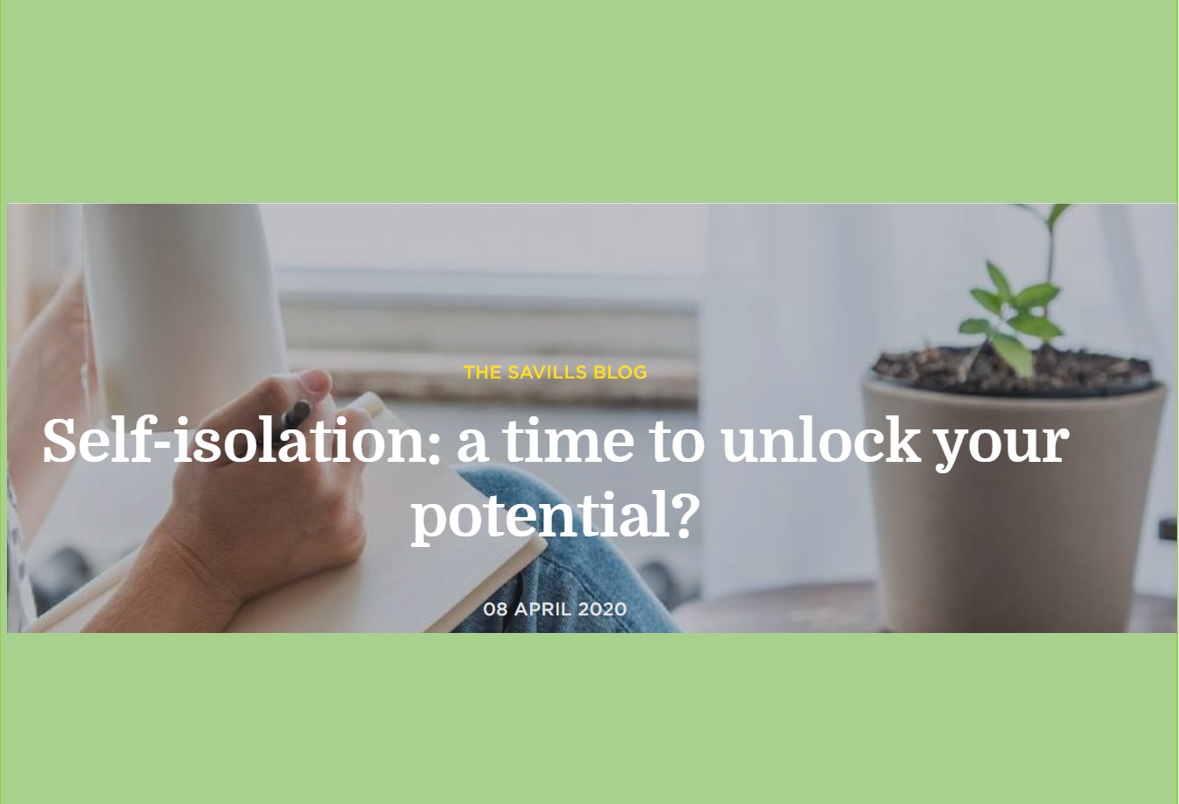Articles
Self-isolation: a time to unlock your potential?
published by
Fran Puddefoot

A month ago, self-isolation was a new concept to many of us, yet now we are all experts in what it is and how to do it. On the heels of self-isolation comes the threat of tedium and apathy. However, a quick flick back through the history books reveals that isolation has in the past fuelled intellectual discovery and self-awareness.
Great thinkers and doers have frequently championed the intellectual and spiritual benefits of solitude, from Nietzsche, Emerson and Turing to Woolf, Shackleton and Lao Tzu who famously wrote ‘ordinary men hate solitude. But the Master makes use of it, embracing his aloneness, realising he is one with the whole universe’.
The lone intellect is an enduring motif, and multiple scientific studies have tested the theory. But what about those forced to isolate, holed up through nationally imposed lockdowns?
There are two particularly exceptional brains who did much of their most influential thinking while locked away during British pandemics.
Firstly, the technician. The last time the University of Cambridge was temporarily shut down was in 1665 due to the bubonic plague. During this closure, Isaac Newton headed home to Woolsthorpe Manor in Lincolnshire. While there, ‘musing in the garden’, Newton developed the theory of gravity, and so began his Annus Mirabilis. This enforced absence was the most intellectually fruitful time of Newton’s whole life.
Secondly, the philosopher and writer. Another great mind to produce seminal work during lockdown was William Shakespeare. During his life, Londoners were frequently forced to isolate due to outbreaks of the plague. It’s long been thought that Shakespeare turned to poetry when plague closed the theatres in 1593. That’s when he published his poem, Venus and Adonis, in which the goddess begs a kiss, claiming, ‘the plague is banish’d by thy breath’.
In 1606 the plague led to another lockdown within London. During that year Shakespeare wrote from behind closed doors and in doing so changed the world of drama forever, producing King Lear, Macbeth and Anthony and Cleopatra.
Self-isolation in the time of disease has clearly proven conducive to world-changing intellect. However, isolation isn’t just the result of disease – monks are proponents of seclusion as a way of life. For an inspiring story and modern day advocate of complete isolation, the life of Tenzin Palmo – a Buddhist nun from London who spent three years in a cave – is worth reading about.
The word monk derives from the Greek μοναχός, meaning ‘single, solitary’, indicative of monastic life led away from society in prayer and contemplation. Thomas Merton, a Trappist monk and writer who spent years alone wrote: ‘we cannot see things in perspective until we cease to hug them to our bosom’.
When the list of cardinal sins was first created, it outlined the biggest threats to a devout life as a monk in the desert. There were originally eight not seven ‘deadly’ sins, the eighth being acedia. Acedia is defined as a state of listlessness or torpor, a lack of care. Evagrius the Solitary (345-399 AD) was an influential theologian and monk, a well-known thinker, writer and speaker. To Evagrius, acedia was the hardest of the sins to conquer and doing so would bring monks closer to God.
Within monastic isolation, overcoming acedia is paramount. In order for isolation to be positive and productive, personal discipline and application are deemed essential.
In our hyper-connected, extroverted society, solitude is increasingly devalued and disregarded. A recent scientific study found that participants chose to subject themselves to electric shocks rather than be left alone with their thoughts.
We don’t know for how long this national lockdown led isolation will continue, but a glance back into the past shows that productively engaging with isolation can produce discovery and revelation. Perhaps this pandemic may reveal the latent Newton or Shakespeare within us.
Author: Molly Biddell, Policy Analyst, Rural Research 8th April 2020
prev
New Homes
Best advice in an uncertain housing market
Articles
How to make your home market-ready during lockdown
Next
Subscribe to our newsletter